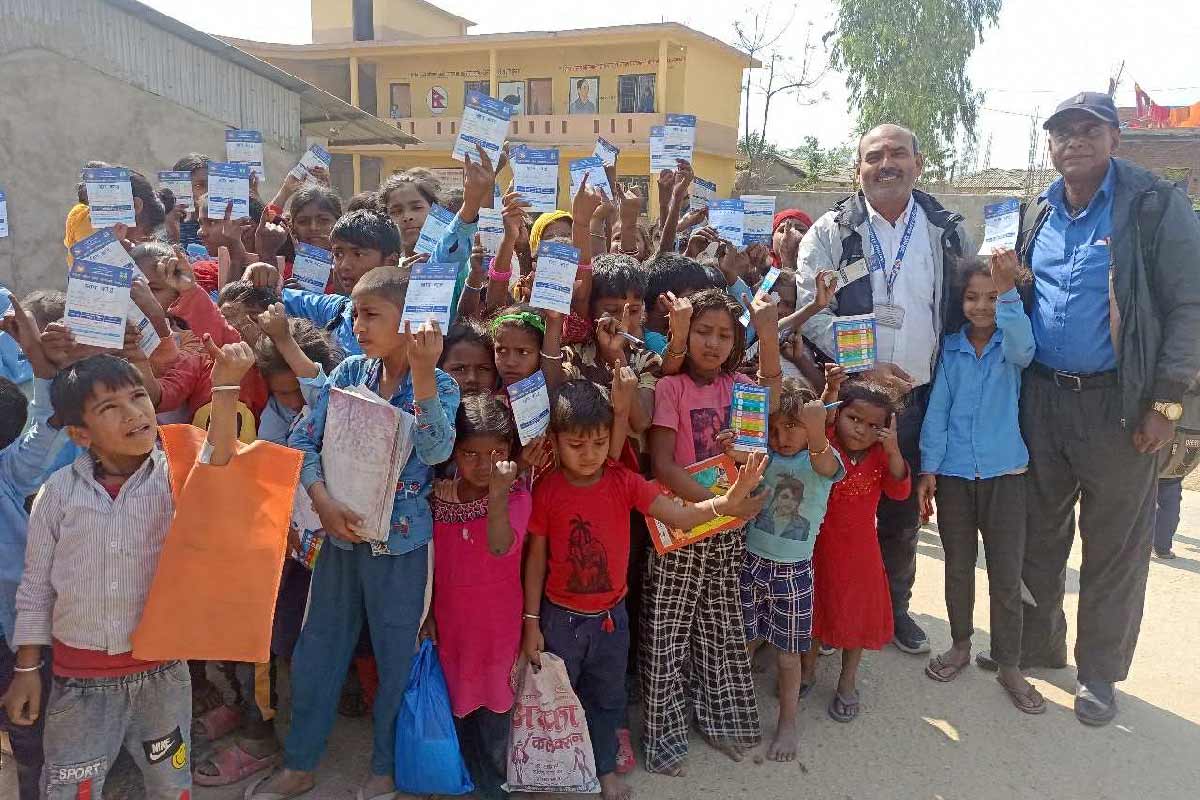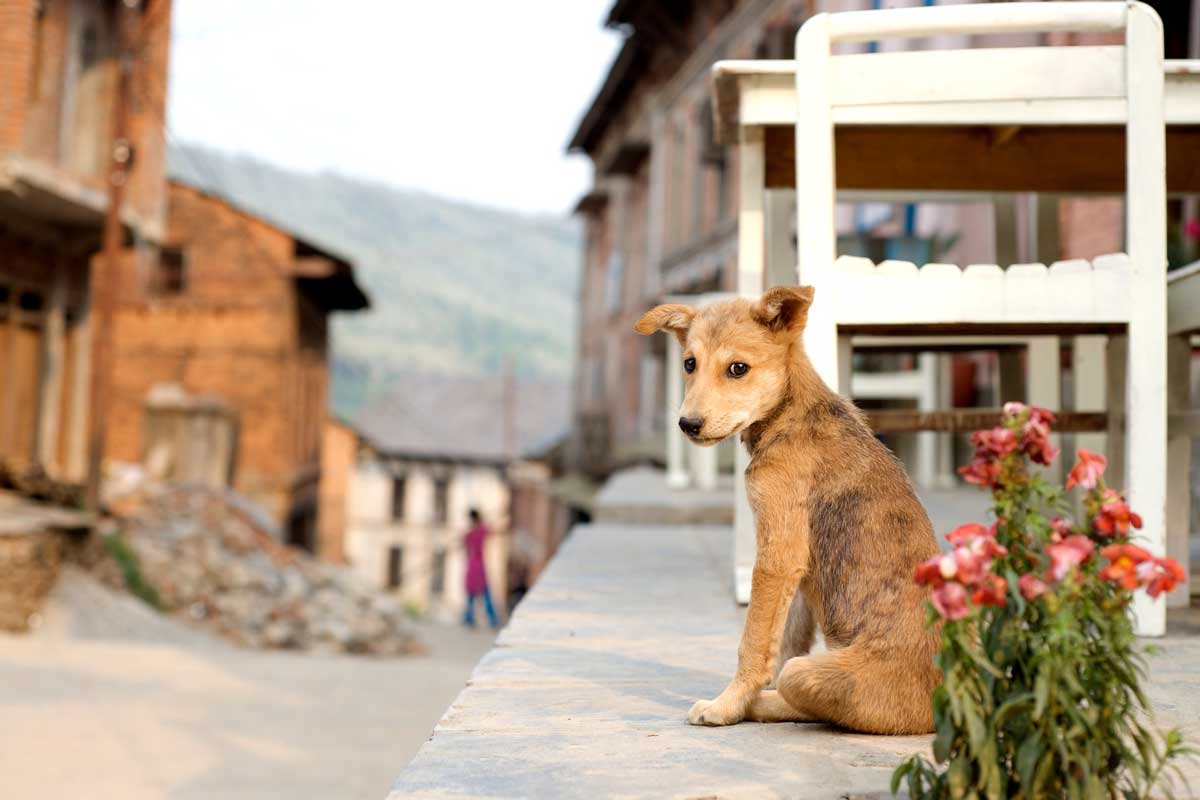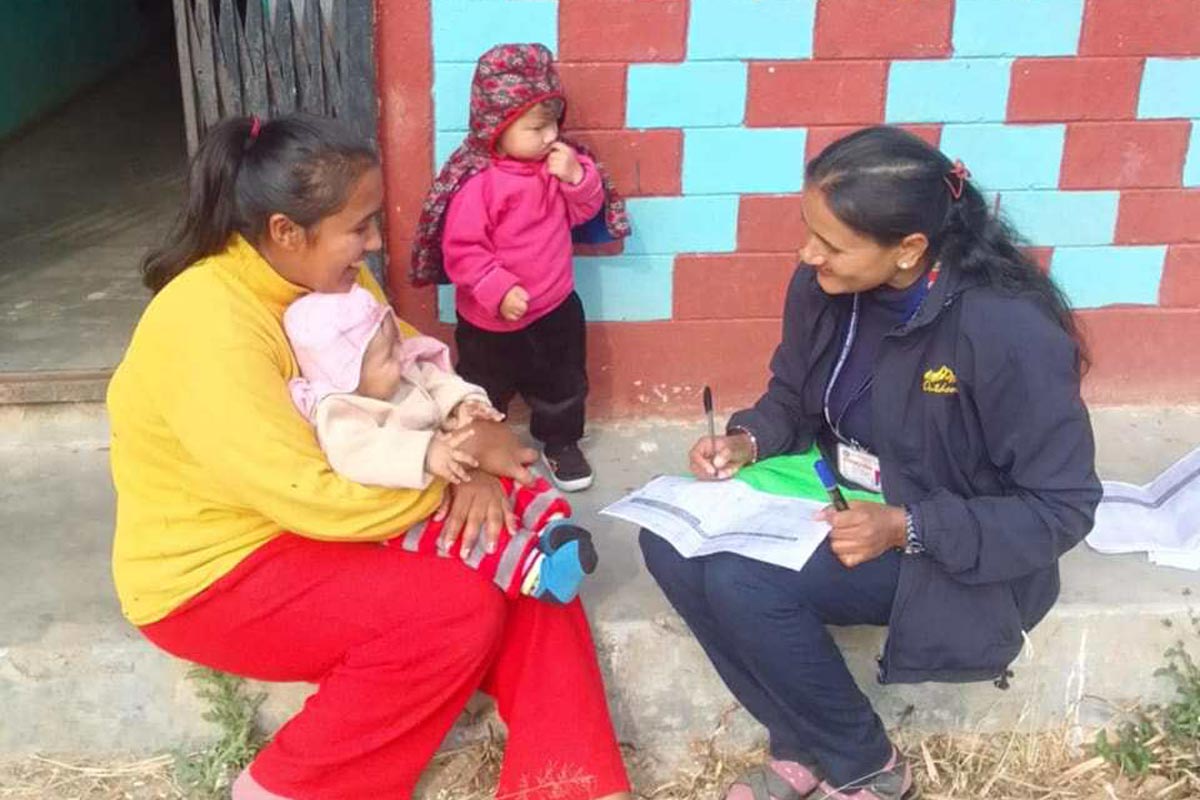New rapid diagnostics kits ease Nepal’s fight against endemic cholera
Quicker outbreak response, less panic, and freer hospital beds: as new screening kits roll out, health workers in Nepal foresee a big impact on the “notorious bacterium”.
- 19 July 2024
- 6 min read
- by Pragya Timsina
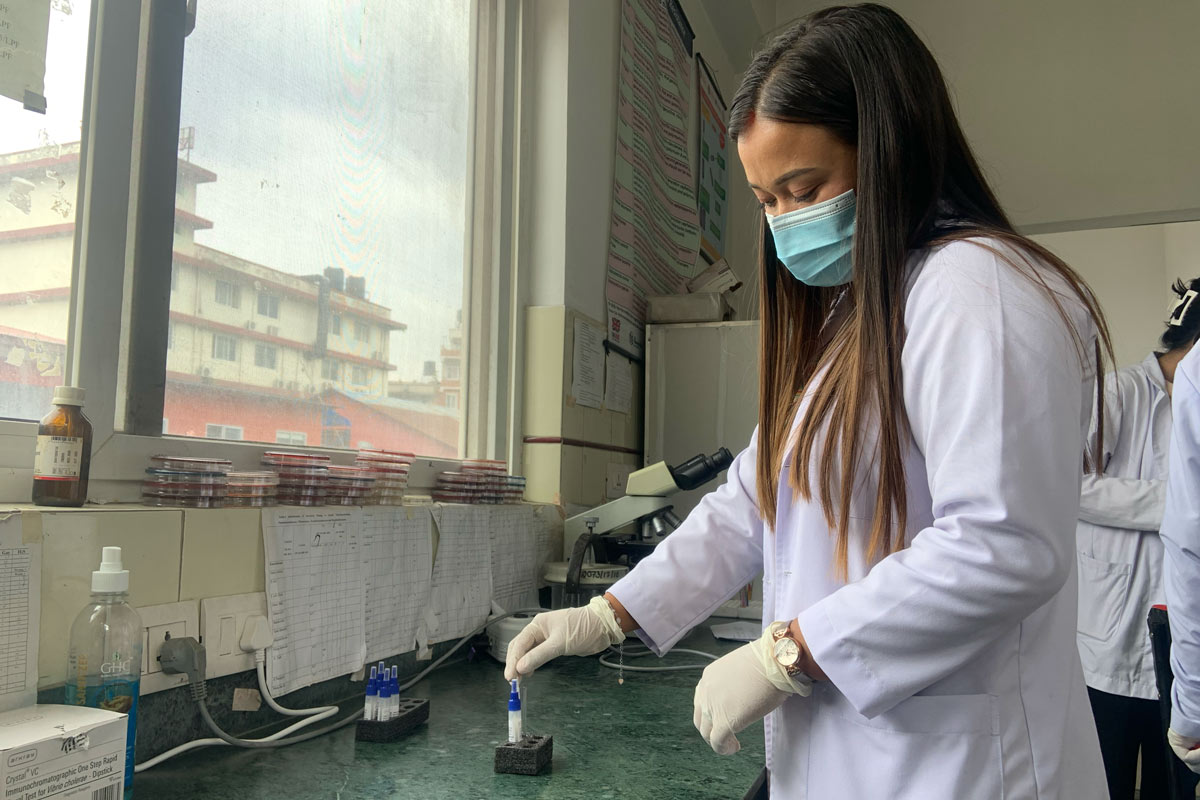
Back in 2009, a rash of people living in various villages of Jajarkot district, a rural part of mid-western Nepal, came down with a sudden and violent diarrhoeal illness that left them severely dehydrated. It only took a day or two for people to start dying.
Runaway epidemic
The nearest health centres were the district hospital at Khalanga and a few rustic health posts that lacked both adequate numbers of trained medical staff and the laboratory capacity to handle diagnostic testing. Soon, all facilities were overwhelmed.
“If we had any rapid testing methods like RDT kits for early detection of cholera at that time, things would have been different.”
- Sagar Dahal of the Ministry of Health recalls 2009’s deadly outbreak
Dr Amin Shah, who is currently doing postgraduate work in internal medicine, could not erase the memory of what happened in his village at that time.
"Every single person in the village had diarrhoea, even up to 30 to 40 times, defecating rampantly everywhere. Soon, adults became lethargic and children unconscious. Those who were stable started carrying their family members to hospital and health posts. The health centres were all flooded with severely dehydrated patients in no time. In a few days, hospitals were even short of cannulas and IV fluids. Health personnel were just clueless and helpless to the situation. Later, people started dying at their homes."
The district public health office confirms 30,000 diarrhoeal cases and 111 diarrhoea-related deaths in Jajarkot district between 1 May and 16 July 2009.
Catching a killer
It took the best part of the week to confirm the cause of the outbreak: at least two days to transport stool samples to Kathmandu, the capital, and a further additional two to three days for culture testing to yield a result.
Finally, the culprit, Vibrio cholerae – a notoriously fast-spreading bacterium transmitted in contaminated food and water – was isolated from the Jajarkot stool samples. But by then, crucial time and many lives had already been lost.
“If we had any rapid testing methods like RDT kits for early detection of cholera at that time, things would have been different," says Sagar Dahal, Section Chief at Epidemiology and Disease Control Division (EDCD) of Ministry of Health.
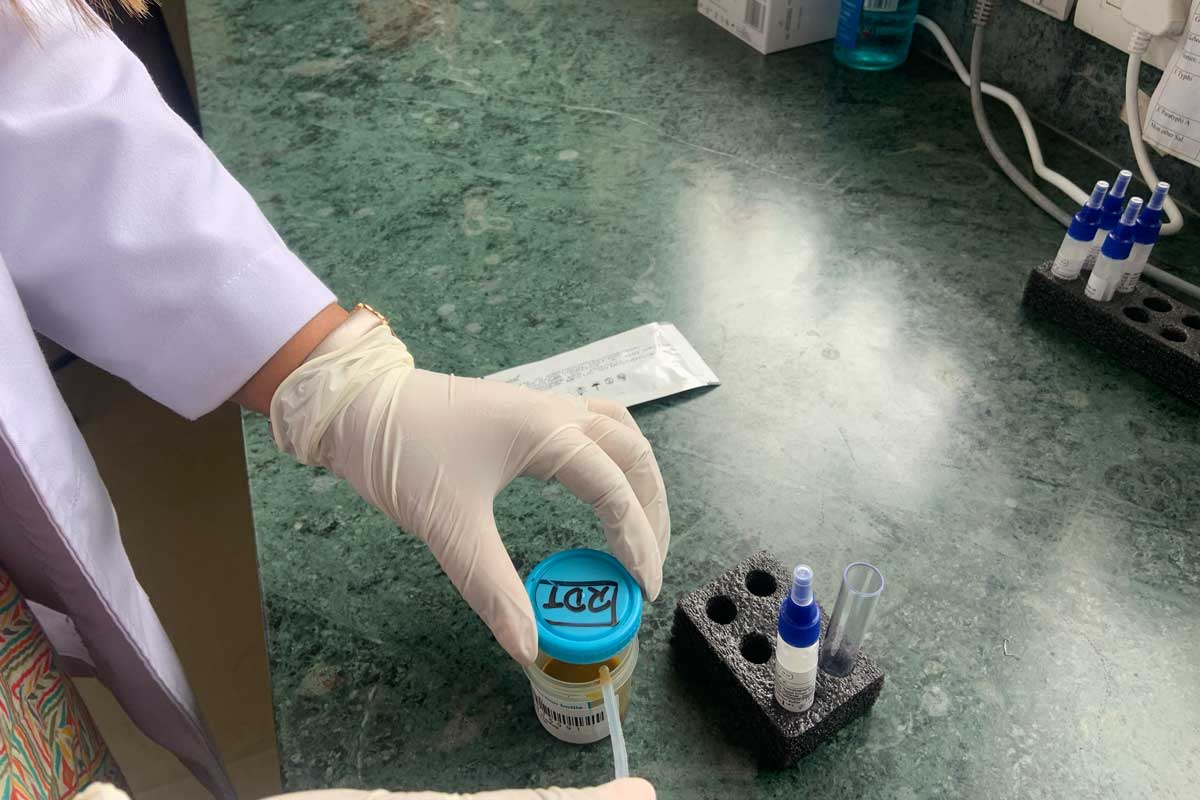
Outpacing cholera risk
The “RDT kits” he refers to are rapid diagnostic tests for cholera – quick, portable screening tools that could make a big difference to health systems as they confront the mounting threat posed by the wildly contagious and frequently deadly bacterial illness.
In April, as cholera outbreaks worldwide continued to swell in scale and frequency, Gavi and partners began to ship out an initial volley of 1.2 million of these kits to 14 at-risk countries, including Nepal.
Cholera is endemic to Nepal. Though 2009’s outbreak occurred at record scale, cholera is detected yearly in the country, with the beginning of the rainy season typically heralding a smattering of cases.
“With the availability of these RDT kits the task of cholera detection has become far easier, and this has direct positive impact on overall efficiency of infectious disease hospital.”
- Shankar Poudel, laboratory in-charge
According to EDCD report from 2022, steady urbanisation, coupled with an inadequate supply of safe drinking water and good sanitation places the country at systemically high risk of outbreaks. Moreover, Nepal faces flooding and landslides during the rainy season that lead to breakdown of already fragile water and sanitation infrastructure.
2021 saw another larger outbreak, when 1,353 people in Kapilvastu district were confirmed severely affected, and six cholera fatalities were recorded. But according to Dahal of the EDCD, "even today, the government has only four laboratories outside the capital city where Vibrio cholerae could be cultured. So it has always been challenging for us to diagnose cholera at community level."
Enter rapid testing
The arrival of a shipment of 13,000 RDTs earlier this year has already begun to ease that problem in some parts of the country.
Dr Sher Bahadur Pun, an infectious disease expert who has been working for more than a decade at an infectious disease hospital in Kathmandu, was very excited to learn the new screening tool was rolling out.
"The RDT kits can easily be carried to the community and even in the resource-limited settings, cases can be easily and rapidly detected by health manpower available to us,” he explained. “This has two important aspects. One: during true cholera spread, cases can be timely isolated so that there is no major outbreak. And next: all diarrhoeal diseases are not cholera. Thus the rapid exclusion [of cholera as the cause] prevents the community from getting panic."
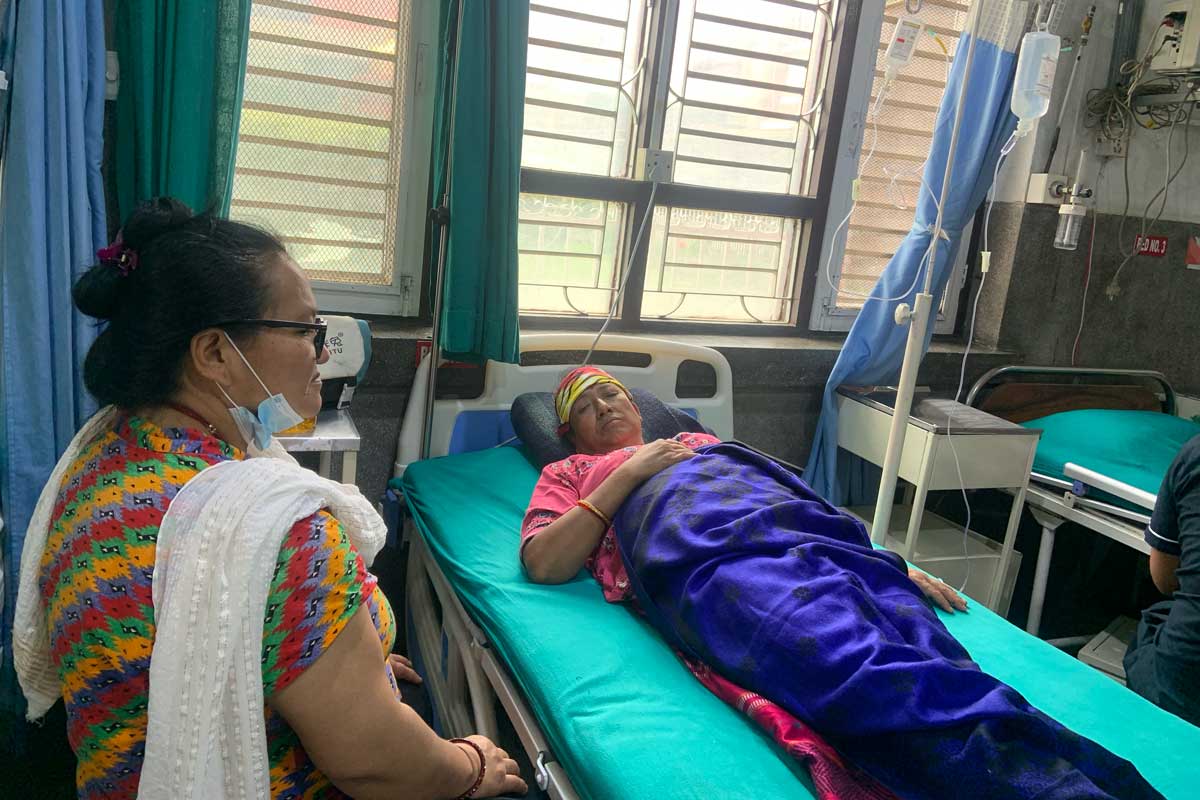
RDTs in action
VaccinesWork visited the Sukaraj Tropical and Infectious Disease Hospital in Kathmandu to see the screening kits put to use.
A 51-year-old woman from a nearby district had been referred for acute diarrhoea of two days. After her initial evaluation at Emergency, doctors admitted her to an isolation unit, and immediately took a stool sample to be sent for cholera screening.
Shankar Poudel, the laboratory in-charge took out the RDT kit, and after minimal processing of the sample, droppered some of it into the kit. After just about 15 minutes, he reported the result: negative for cholera.
The patient was shifted from isolation to the general intensive care unit, making the isolation bed available for other infectious disease cases pending at Emergency.
Poudel reflected, "With the availability of these RDT kits the task of cholera detection has become far easier, and this has direct positive impact on overall efficiency of infectious disease hospital. "
An "additional power"
The 13,000 RDTs have so far have been deployed to two out of seven provinces of the country. In due course, the government will send kits to every district hospital, Dahal told VaccinesWork. From those district hubs, kits can be deployed to community level in case of need.
The government has also prepared a manual for the correct and judicial use of the kits and has trained more than 250 health workers for the same purpose. With this, the government is able to make the RDT service available in a very short period of time, even in the remotest part of the country.
Have you read?
According to Dr Prakasha Budathoki, Ministry of Health and Population spokesperson, health workers are trained in such a way that samples that turn positive with RDT kits are sent for culture for confirmation of diagnosis. Further, a positive test result triggers a robust community-level response: the health system will execute an extensive surveillance programme in the community, using both RDT kits and simultaneously conducting water source purification, and an aggressive sanitation promotion programme.
Mr Budathoki says, "The RDT kits have given us additional power this time to fight against the notorious bacterium. We wholeheartedly would like to thank Gavi for this initiative, and will try to utilise those kits in the best possible way."

